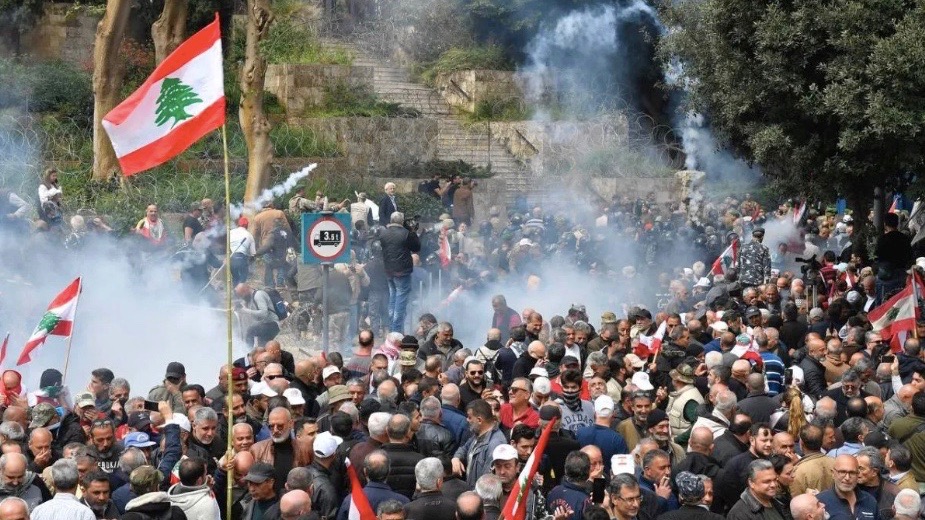Hundreds of people in Lebanon staged a protest outside the government headquarters in central Beirut on Wednesday, March 22. This was the second consecutive day of protests against the ongoing economic crisis in the country.
The protests were organized by retired members of the security forces, pensioners, and depositors in banks. Carrying Lebanese flags, protesters tried to enter the residence of the prime minister, located in the area.
Security forces guarding the government buildings erected barricades and fired tear gas on the protesters in order to disperse them, after some protesters started throwing bottles and stones at the buildings.
Pensioners and depositors have struggled to access their bank accounts after capital control measures were imposed in the country in 2021.
Prime Minister Najib Mikati met a delegation of protesters later in the day.
On Tuesday, protesters closed several roads and shut some businesses in Beirut, following fluctuations in the price of the Lebanese Lira. Protesters raised the issues of price rise, closure of schools, the power crisis, and the worsening healthcare situation in the country, AP reported.
Since January of this year, public sector teachers have been on strike demanding more just pay which has affected the functioning of schools. While some returned to work earlier this month after the government agreed to increase their transport allowance and offered them a small pay hike, a large number of contract teachers are still on strike.
Prolonged economic crisis
Lebanon’s financial and economic crisis is now in its fourth year. The World Bank has dubbed this one of the worst economic crises since the mid-nineteenth century. According to the UN, 82% of the population lives in “multidimensional poverty.”
The Lebanese Lira, which is officially pegged at a rate of 1,500 against the US dollar, was trading at 140,000 on Tuesday. Since 2019, the Lebanese currency has lost almost 98% of its value against the US dollar.
This loss of value of the local currency has had a devastating impact on the prices of crucial commodities such as food, fuel, and medicine, all of which are heavily based on imports.
According to AP, some gas stations and pharmacies closed for the day on Tuesday in protest against the fluctuations in prices. Protesters demanded that prices be fixed in US dollars.
However, successive governments in the country have failed to take any decisive steps to address the crisis. They have faced hurdles in procuring loans from the IMF as well due to the country’s political instability. Governments in the country have hesitated to finalize the IMF loan as it would require the implementation of economic policies that will inflict more pain on the people and, therefore, are considered unpopular.





